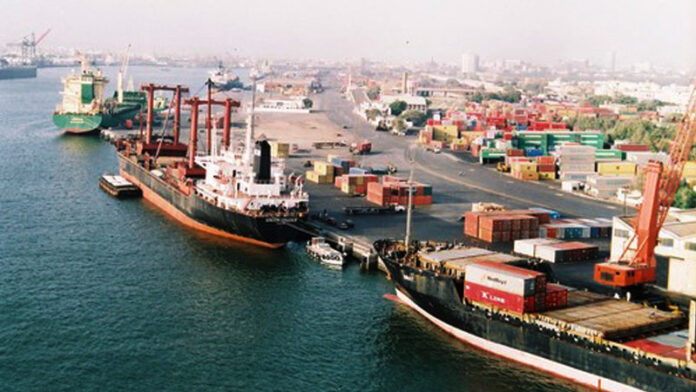Karachi’s Port Qasim has been ranked 9th in the World Bank’s Container Port Performance Index (CPPI) for the period 2020-2024, marking a significant improvement in port performance. The port’s high ranking reflects a 35.2-point leap in performance between 2020 and 2024, according to the latest CPPI report, prepared in collaboration with S&P Global Market Intelligence.
Federal Minister for Maritime Affairs Muhammad Junaid Anwar Chaudhry has welcomed the World Bank’s recognition of Port Qasim as the ninth most improved port globally, describing it as a testament to the government’s sustained reforms and modernization initiatives.
According to the World Bank’s latest Container Port Performance Index (CPPI) 2024, Port Qasim registered a remarkable 35.2-point improvement between 2020 and 2024, placing it among the Top 20 most improved ports worldwide.
The top spot went to Posorja Port in Ecuador, which achieved a 72.8-point leap in performance. It was followed by Gothenburg Port in Sweden, Marseille Port in France, and Philadelphia Port in the United States. Other notable performers included Mawan Port in China, Tin Can Island in Nigeria, Port Said in Egypt, and Lagos Port. At the tenth slot, trailing Port Qasim, was India’s Jawaharlal Nehru Port.
Prepared in collaboration with S&P Global Market Intelligence, the CPPI assessed over 400 container ports worldwide. The report attributed performance gains to reduced waiting times at anchor, optimised berth operations, investment in digital tools, and stronger coordination among logistics partners.
The study also emphasised the importance of maritime and hinterland connectivity, noting that ports offering more frequent rail, truck, and waterway transport options are increasingly attractive to exporters and importers. Cargo dwell time and the distinction between total arrival hours and berth hours were also key factors in measuring efficiency.
In a statement issued on Saturday, Minister Chaudhry credited the port’s progress to reforms and modernization measures introduced in recent years. “We remain committed to strengthening the maritime sector and making it a vital contributor to national and regional trade,” he said.
The minister praised the role of private operators, particularly DP World’s Qasim International Container Terminal (QICT), for maintaining operations at international standards. He further announced the approval of a long-awaited dredging project for the port channel, which will enable Port Qasim to handle larger vessels and expand its trade capacity.
Chaudhry noted that improved performance is likely to attract foreign investment in Pakistan’s maritime and logistics sectors while providing exporters and importers with more reliable and cost-efficient shipping options.
Pakistan, he added, is working to position itself as a strategic logistics corridor connecting the Middle East, Central Asia, China, and beyond. Efforts are underway to integrate ports with inland transport networks, expand digital systems, and ensure environmental sustainability in maritime operations.




